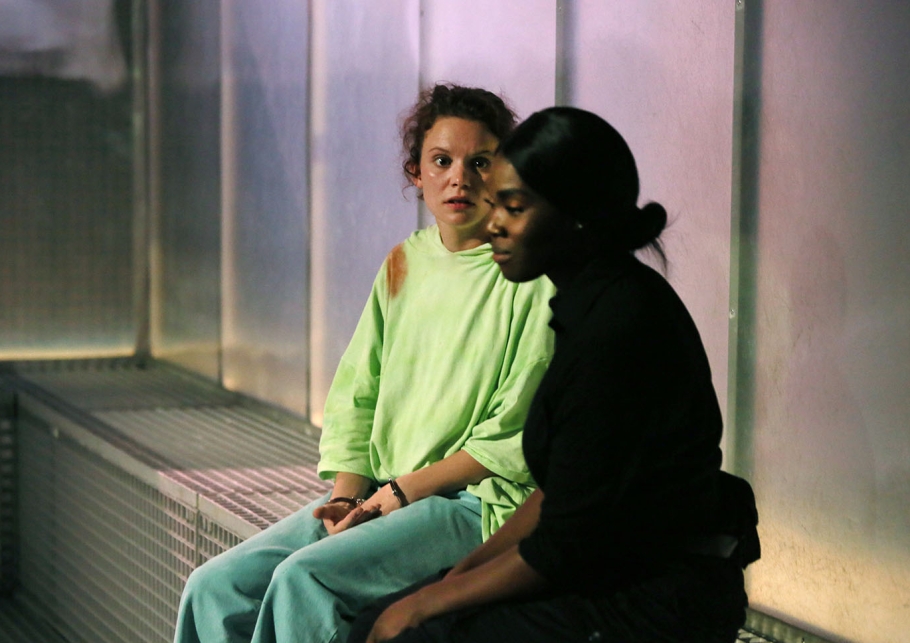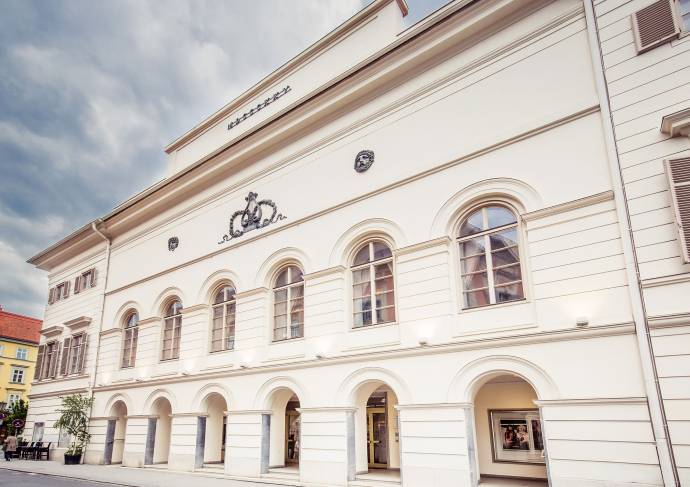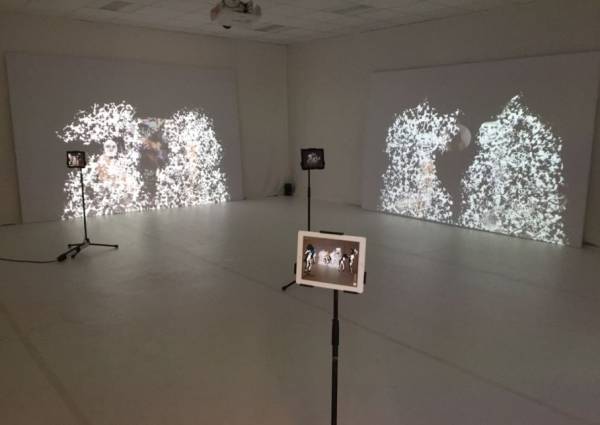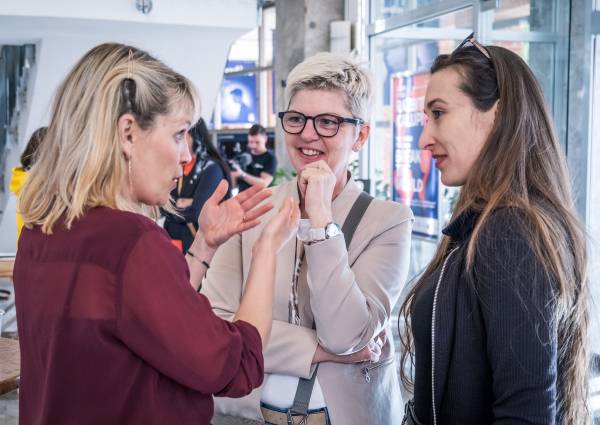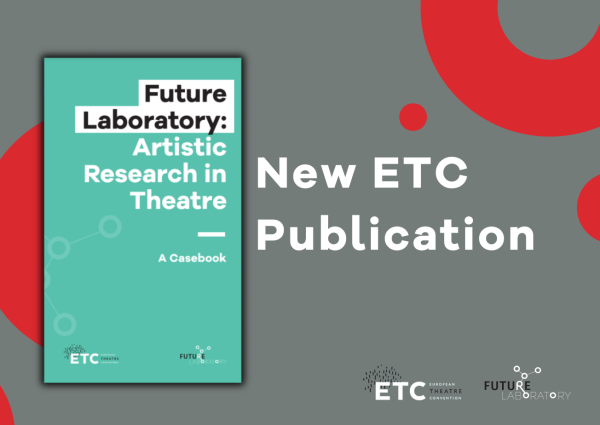- Nine original plays for young people, by theatres in five European countries, and a livestreamed panel on ‘New Formats & Spaces for Young Audiences’ will be presented online at the Young Europe Festival To:gather (7-9 June)
- A livestreamed panel discussion on ‘Silenced Theatres: Illiberal Democracies and the Effects of Covid-19’ will open the first hybrid in-person / online version of the ETC International Theatre Conference (10 – 11 June)
- The Week of New European Drama will take place on the drama.digital microsite, a fully explorable, pop-art-style digital version of Schauspielhaus Graz - the ETC Member Theatre hosting the activities alongside its own theatre festival, Dramatiker*innen festival (8-13 June)
- All ETC performances are free. See here for more information and tickets
New ways of making theatre for young people and fresh ideas for a more inclusive and sustainable theatre sector are to be unveiled as part of a major new festival this summer.
The Week of New European Drama, coordinated by the European Theatre Convention, will run from 7-13 June and introduce audiences to a programme of interactive and streamed performances as part of the Young Europe Festival To:gather (7 -9 June). This sees nine theatres from five European countries present original, online-ready productions for young people on themes ranging from rage and autonomous decision-making to the climate crisis.
In addition, the week of activities includes the first hybrid in-person / online version of the ETC International Theatre Conference (10-11 June), hosted in partnership with ETC member theatre Schauspielhaus Graz; a participatory ‘Zoom Reading’ event, in which new texts are translated into English and presented to audiences for the first time; and the release of key pledges for ETC member theatres and the wider theatre sector on sustainability, youth theatre and participatory theatre.
Young Europe Festival To:gather (7-9 June)
The Young Europe Festival To:gather is the culmination of Young Europe, a four-year artistic collaboration programme coordinated by the European Theatre Convention (ETC) and funded by the Creative Europe programme of the European Union.
Through this, nine theatres from five countries interviewed young people on key themes ranging from democracy to rage, the climate crisis, and their visions for the future.
From this research seven new plays were created, which are being presented in nine original productions:
- Three versions of Democrisis, immersive games based on interviews with 14–20-year-olds. They ask: What do we lose if we put our democracy at risk? By Theater Magdeburg /Germany, "Marin Sorescu" National Theatre of Craiova/Romania and Staatstheater Braunschweig/Germany
- RAGE, a streamed classroom play by Junges DT - Deutsches Theater Berlin/Germany, which reflects on the political desires of young people and whether Fridays for Future “is just the beginning.”
- Age of Rage, by de Toneelmakerij/The Netherlands, is a play about a “combative girl who is trying all she can to move forward, but keeps getting dragged down.”
- Fury Island, by Weöres Sándor Színház, Szombathely/Hungary, is told via a series of overlapping narratives and asks how even those with good support mechanisms could commit serious crimes.
- Plan(et) B, a live Zoom play by Badisches Staatstheater Karlsruhe/Germany, focuses on the Fridays for Future movement and says it’s time for a new generation to take the wheel “because there is no planet B for us to escape to.”
- Strange Things, by Slovak National Drama Theatre, Bratislava/Slovakia, is a showreel of a play set in a world after a catastrophe when all the adults have disappeared and there are no resources. It asks how the young people would manage in the new context, and what sort of world they would create?
- Before Tomorrow, by Pesti Magyar Színház, Budapest/Hungary, asks a similar question: How would young people equip their lives for a world in which there are no adults?
The festival will also include a major panel discussion, New Formats & Spaces For Young Audiences, with expert speakers from the Young Europe Programme, Assitej International, the European Commission and the Allianz Kulturstiftung.
In addition, there will be a programme of table talks with the authors and dramaturgs involved in the project to discuss their approaches and working processes, and a Symposium for Theatre Educators – reflecting on theatre during and after the pandemic, including how much work will be live and how much will be presented online.
Tickets for all events can be found on the ETC website. All productions are free to watch but prior sign up is necessary.
Drama.digital: The immersive digital venue
All of the events, performance streams and panel discussions can be accessed through the drama.digital microsite, which will go live on Monday 7 June.
This is a fully-explorable, stylised digital rendering of the Schauspielhaus Graz building. After entering the site audiences find themselves in a Welcome Centre, from which they are free to explore events and networking opportunities located in different parts of the building - including an underground flower storage room, the rigging loft, a secret garden, and even Graz Intendant / Artistic Director Iris Laufenberg’s office.
The microsite is created by Germany-based artist collective CyberRäuber.
ETC International Theatre Conference (10-11 June)
The second key element in the Week of New European Drama will be the ETC International Theatre Conference (10-11 June). This biannual conference is a chance for ETC Members and invited guests to network with European colleagues and share best practice.
On 10 June, the main panel discussion ‘Silenced Theatres 2021: Illiberal Democracies and the Effects of Covid-19’ will be livestreamed and available to watch around the world for free. More information and updates about the speakers are available on the ETC website.
The ETC International Theatre Conference programme also includes:
- ENGAGE Readings: Collaborative readings and meetings with the authors. The objective is to highlight European contemporary playwrights and their work, to create a pool of contemporary European texts for theatres and support the international trajectory of text-based theatre plays through translation.
- A presentation of the Self-Monitoring tools that arose out of ETC’s study on Gender Equality and Diversity in European Theatres, which was published in March 2021.
The week of activities will take place at the same time as Schauspielhaus Graz’s Dramatiker*innen Festival, which asks authors, theatre makers and other artists what stories are needed on the way tomorrow, and how we get there.
The Week of New European Drama follows on from ETC’s Renaissance programme, which sees 22 theatres from 18 countries each produce a five-minute video reflecting on the potential for a ‘rebirth’ of theatre after the pandemic. New videos are released every week day until 4 June and can be watched on the ETC website.


